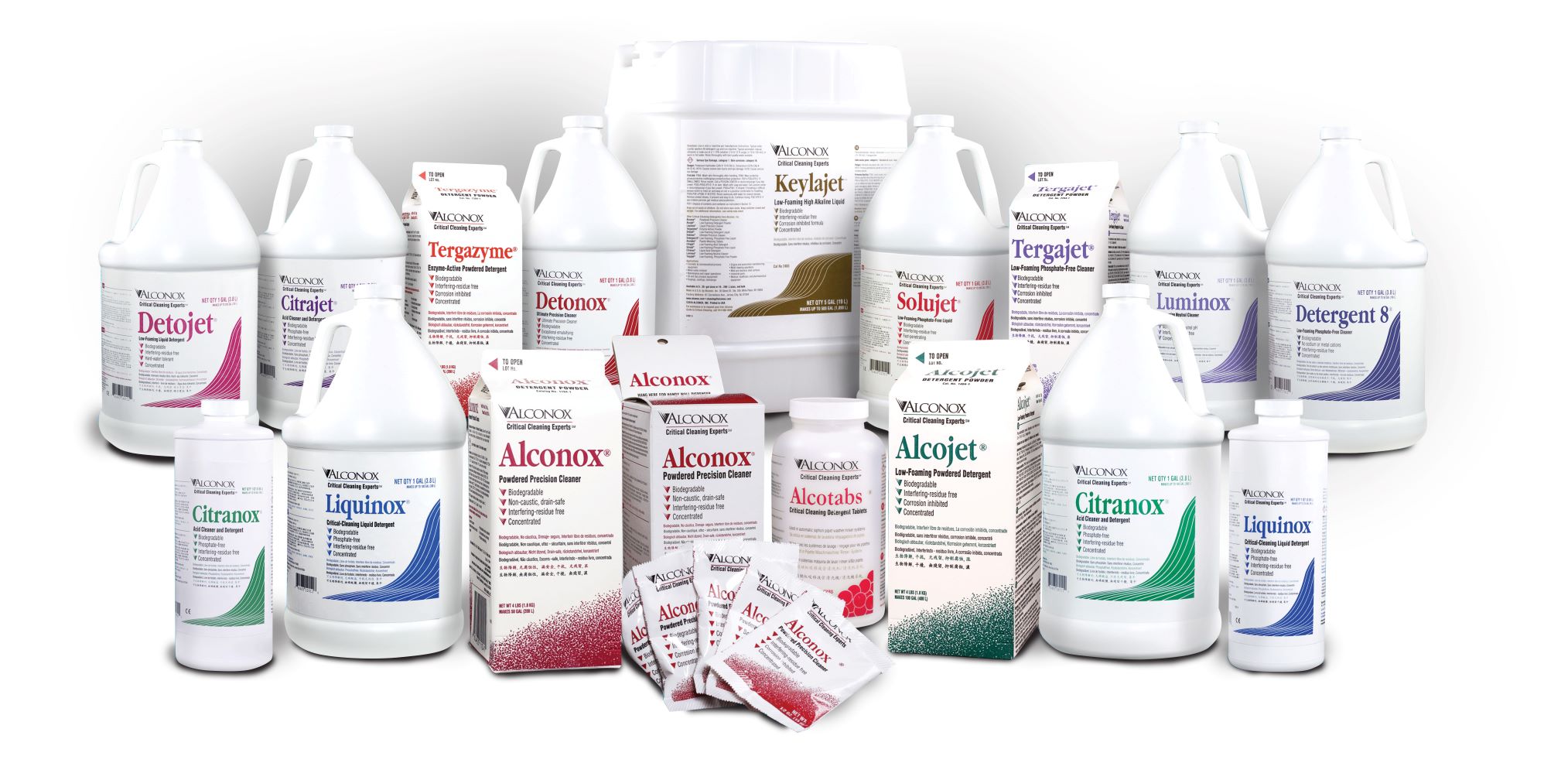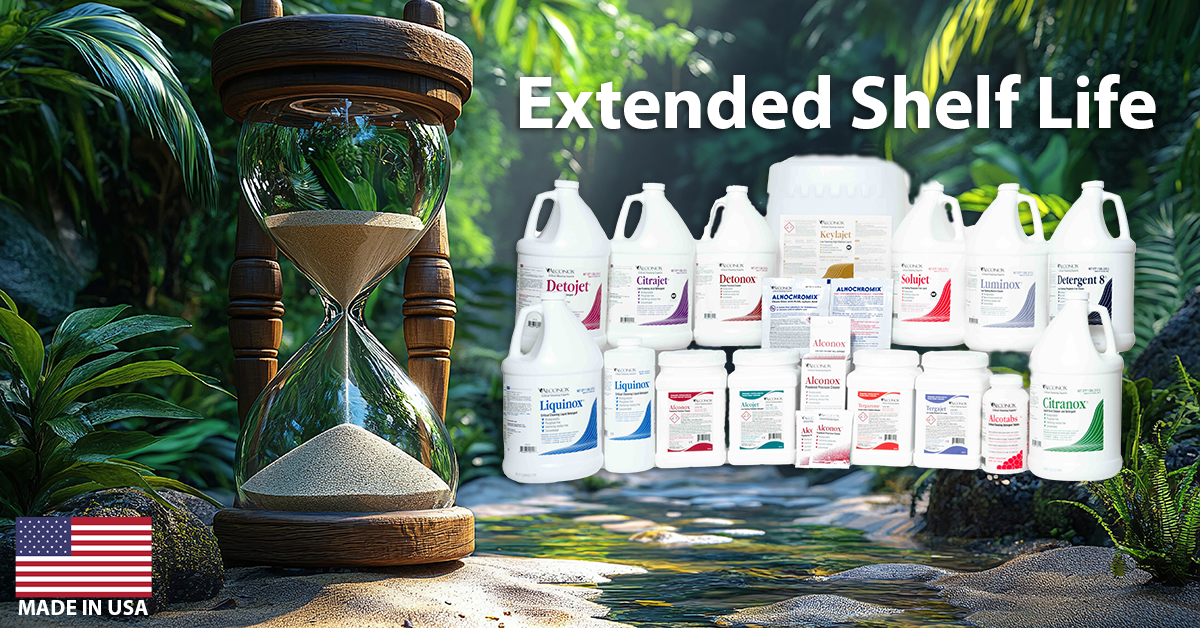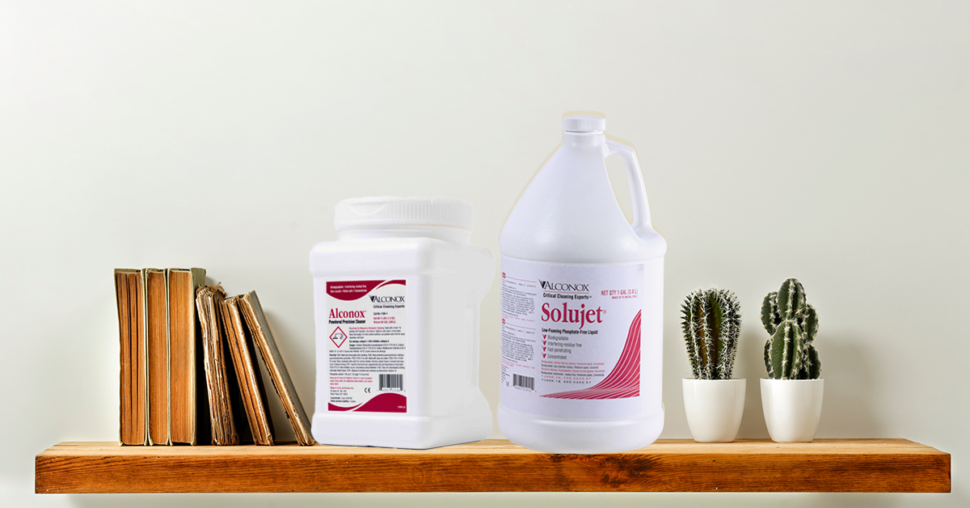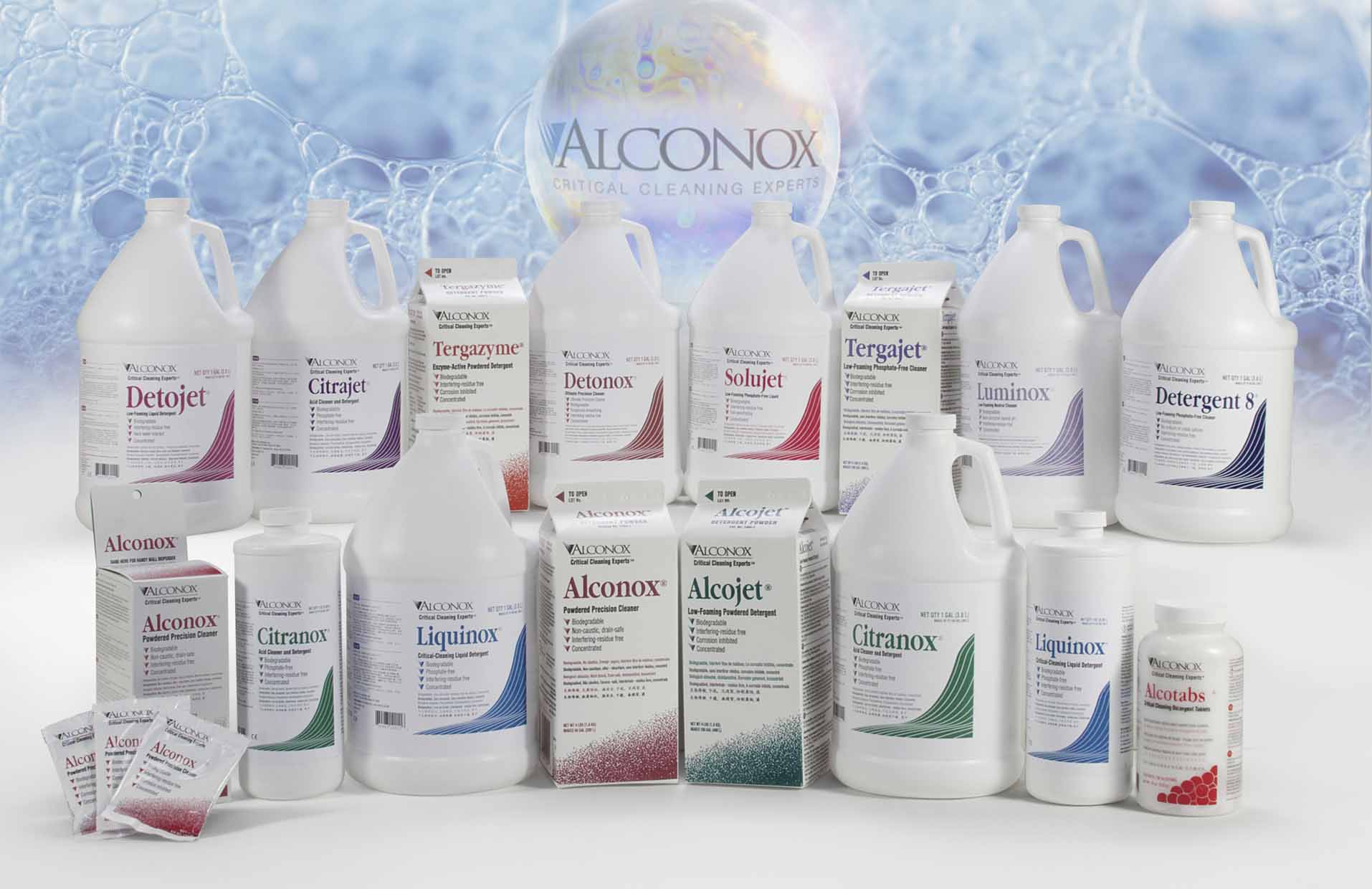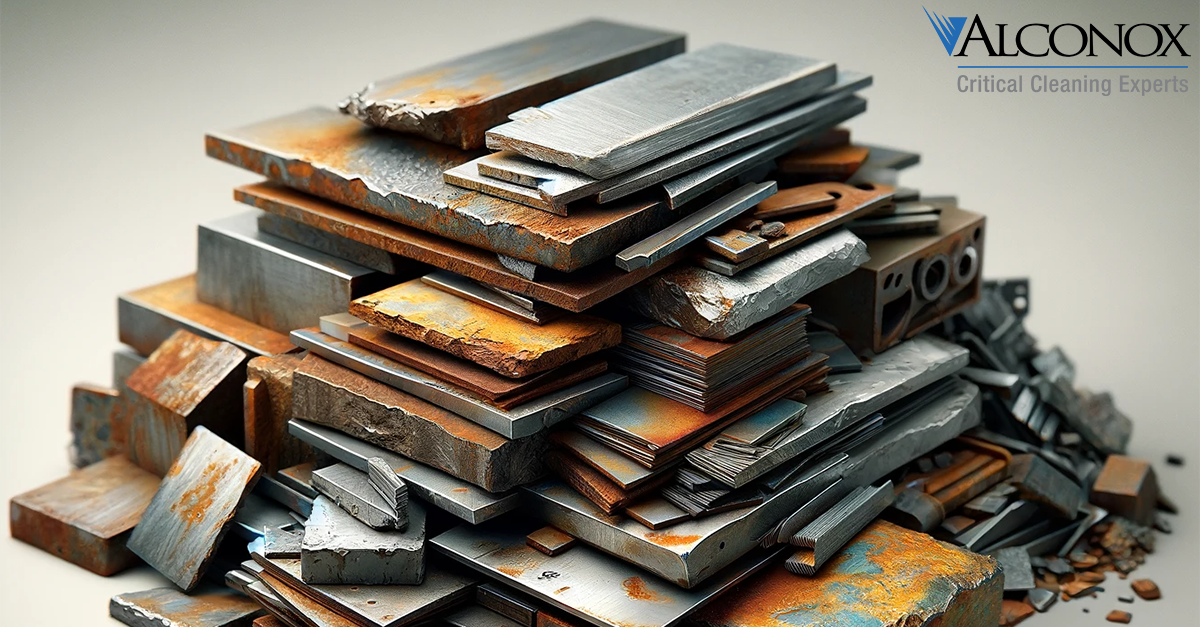
Q: Per the label, why is corrosion testing advisable when using Solujet detergent for critical cleaning? How do we perform such a test?
A: Corrosion testing is important when using Solujet® Low-Foaming Phosphate-Free Liquid, or any Alconox, LLC cleaning solution, for critical cleaning. While the Solujet cleaner is known for its broad compatibility across many metals, glassware, and plastics, confirming compatibility in your specific conditions, setup, instruments, and application is good practice. While few word argue water and rock are “compatible” you eventually get the Grand Canyon. The process matters. This of course goes for all Alconox, LLC detergents.
While our portfolio of drain safe, biodegradable, aqueous detergents is designed to be compatible (compatibility reference table are available on request) across a wide range of substrates, verifying the detergent we recommend, or you have otherwise selected, works with your process, is always advisable.
(Note: In addition to compatibility, verifications at larger scale can also ensure cleaning parameters work as intended. Remember, cleaning does not always scale cleanly.)
Step 1: Assess Your Equipment and Surfaces
Before choosing a cleaning solution, look to evaluate the materials that need to be cleaned. This can include surfaces, parts, and seals/gaskets. Different metals and materials may react differently to cleaning agents.
Step 2: Conduct Corrosion Testing
Once you have identified the materials that need to be cleaned, perform corrosion testing to determine the effects of the detergent on these surfaces. Gross testing can be done by immersing a small sample of the material in a diluted solution(s) of the intended detergent(s) for a set period and observing any changes or damage. This can be done by weighing or visual inspection.
Step 3: Consider Process Variables
Once a screening is done and a gross compatibility is confirmed, consider other process variables such as temperature, concentration, and exposure time. These factors can also impact the compatibility of the detergent with your equipment and surfaces. Look to verify at intermediate or full scale tests, as appropriate.
Step 4: Consult with Alconox, LLC Experts
For questions about the compatibility of a detergent with your specific application, contact the experts at Alconox, LLC Our global presence and expertise in the laboratory detergent sector make us a valuable resource for guidance and recommendations. While we will likely recommend you confirm in your process as described above, providing us the surface, residue and cleaning method will greatly assist in narrowing down what detergents to look at.
In short, corrosion testing is confirming that the detergent will not damage your substrate or part in the process you are using.
To request any Alconox, LLC detergents for free, please complete the questionnaire at Get Sample. For more information about any one of our Alconox, LLC detergents, consult the technical bulletin for each product. Or click here to access each of our detergent’s Safety Data Sheets.
Do you have a critical cleaning question for the experts at Alconox, LLC? Search TechNotes to see if it’s been answered before or Ask Alconox.
To request any Alconox, LLC detergents for free, please complete the questionnaire at Get Sample. For more information about any one of our Alconox, LLC detergents, consult the technical bulletin for each product. Or click here to access each of our detergent’s Safety Data Sheets
